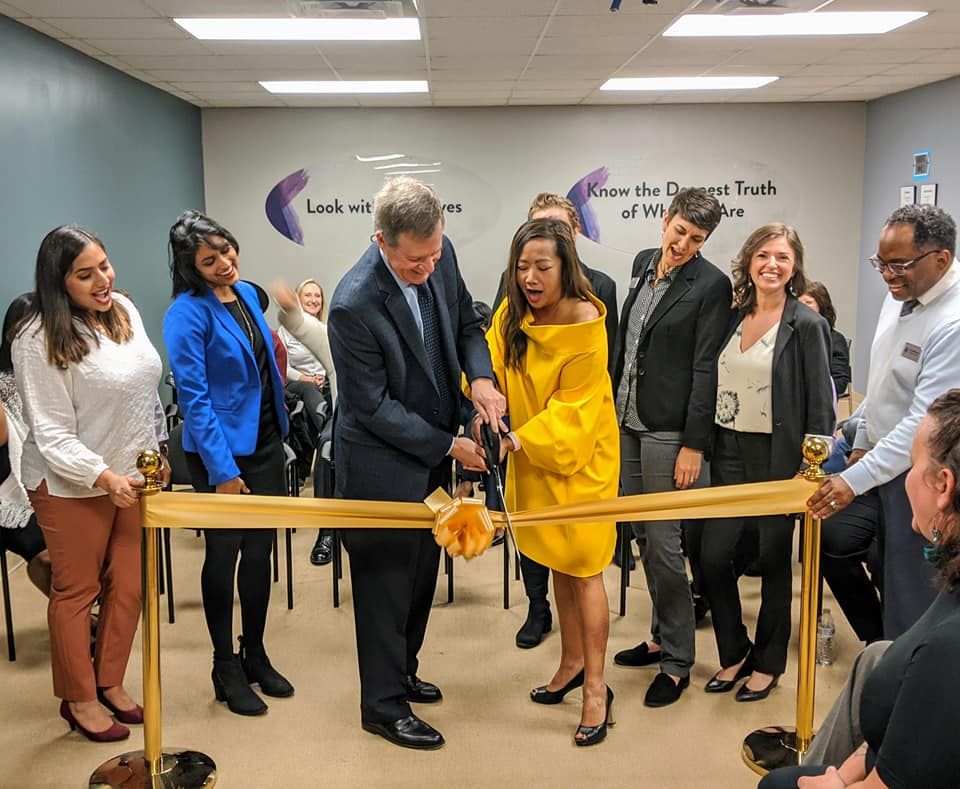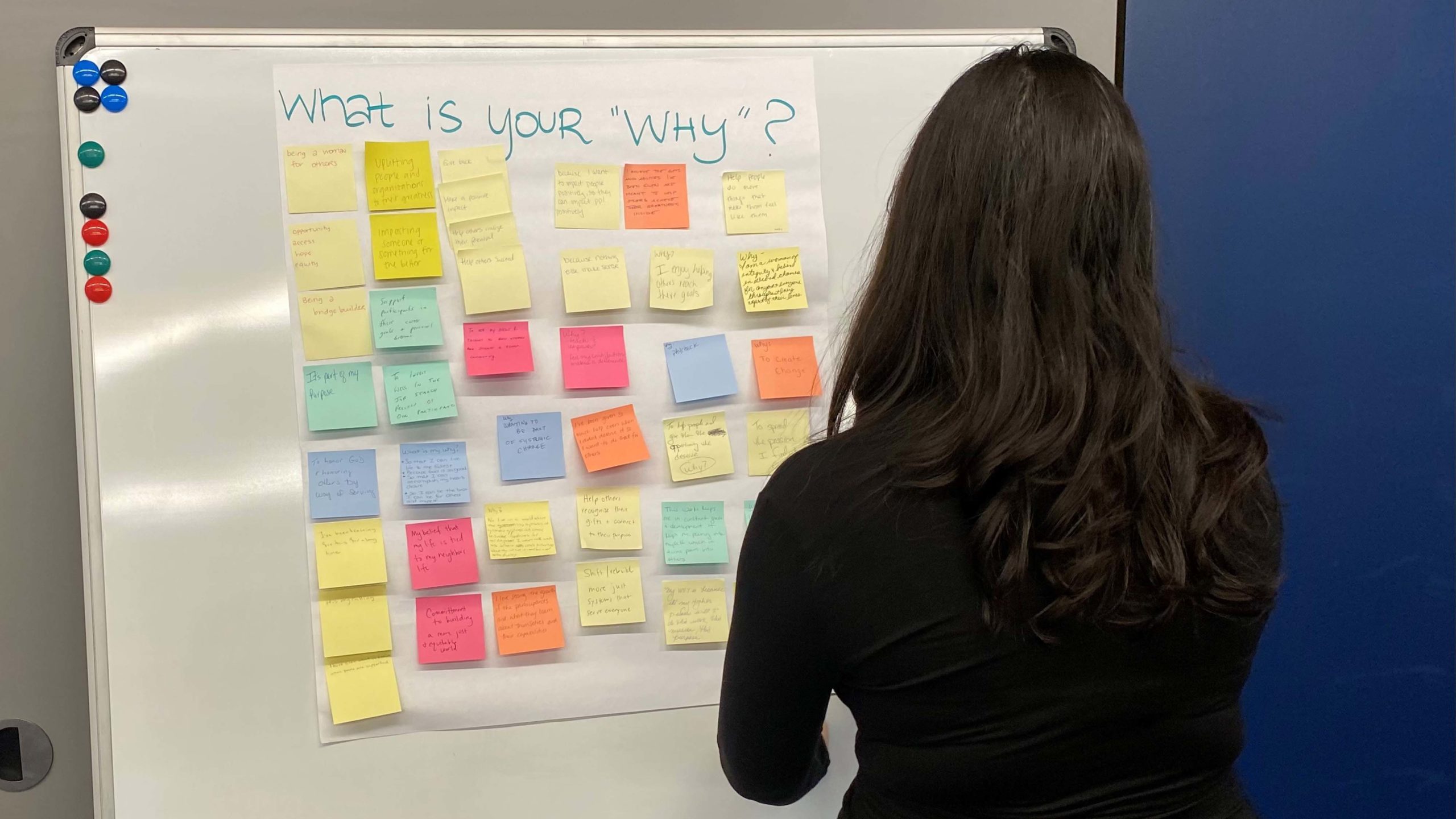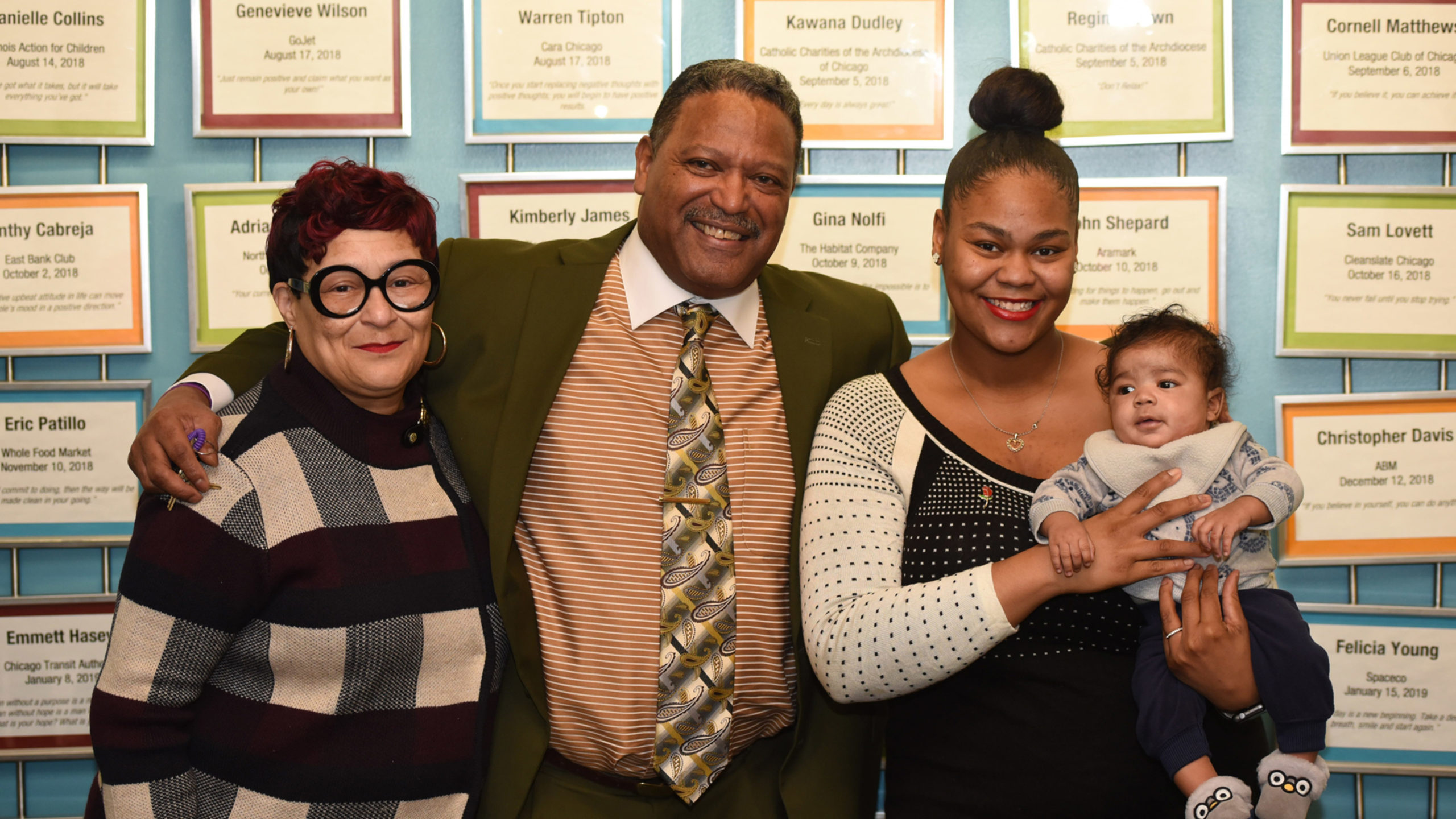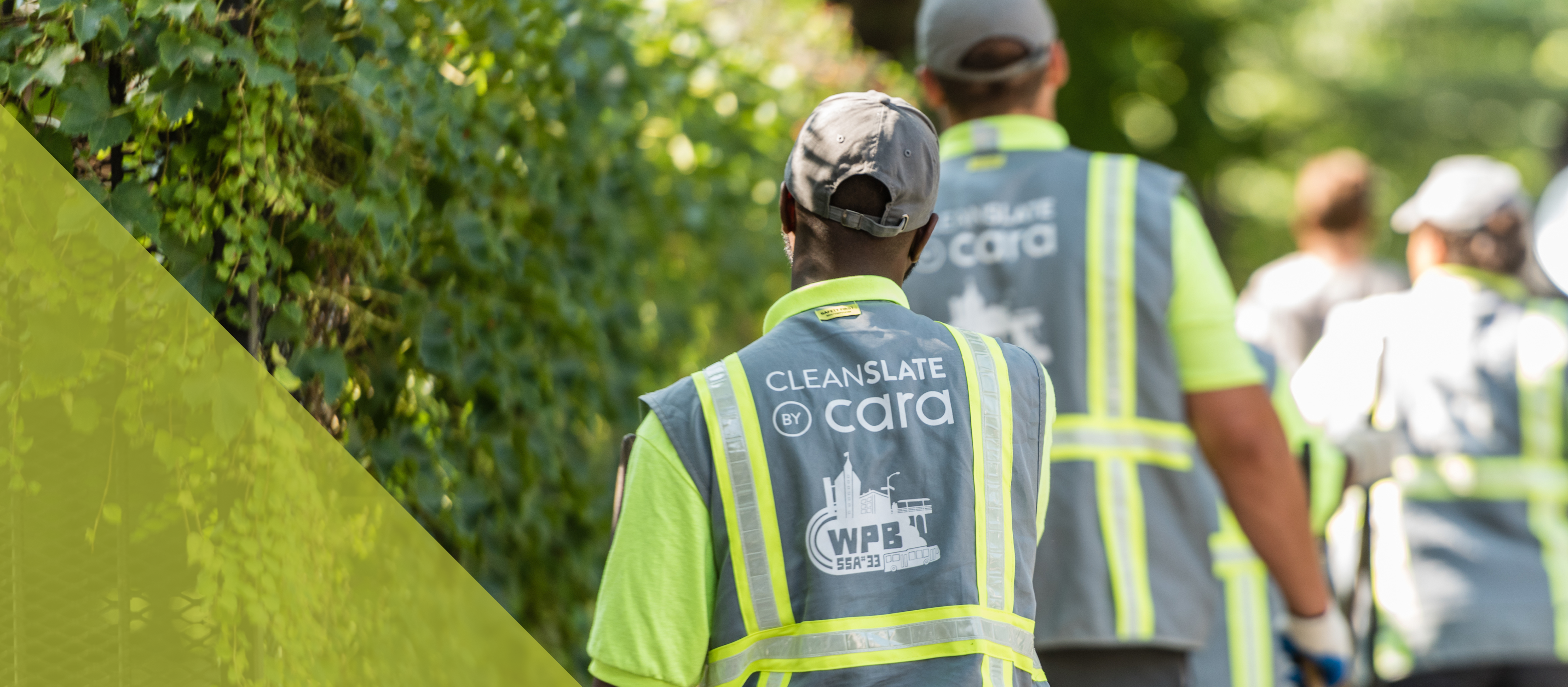Cara Plus: Our Affiliate Program

Affiliates spread Cara’s mission to new communities to get more people back to work. Learn more about this inclusive, sustainable movement and how to join us.
Here’s how our affiliate program works and why it’s so important
Looking to bring Cara to your community? You’re not the only one. We also want to bring our job training services to cities that could use them, but meaningful expansion isn’t always easy or possible. Thankfully, there are plenty of organizations out there with goals similar to ours that just need help to fully develop their services. That’s where our affiliate program, created through Cara Plus™, comes in. Here’s what you need to know about why this program exists and how we can work together to build a successful workforce development program in your community.
Origins
In 2015, something cool happened. Lutheran Social Services of Indiana (LSSI) reached out with an important inquiry. They were already running a successful social service agency in Fort Wayne, Indiana, and they wanted our assistance in building a workforce development program to help their clients become self-sufficient.
Although we’d been asked about taking Cara outside of Chicago before, we liked that this request gave us the opportunity to help LSSI unlock their potential—something we do with our participants all the time. For the next year, we consulted with LSSI to help them develop a workforce program based on our model that they would run independently, but where we could provide assistance when they got stuck. In 2016, LSSI Works was launched, proving that our program didn’t have to be unique to Chicago and could be adapted to new places and contexts. Building off this model, we launched our second affiliate in 2019 with Atlanta Mission, Georgia’s largest homeless shelter, enabling them to move people experiencing homelessness to gainful employment as well.
How to Become an Affiliate
We become affiliates with two kinds of organizations: One, organizations with a successful track record working with adults in poverty that want to add a workforce development component to their existing programs; and two, social enterprises with a workforce development focus that want to set up a more robust program to increase retention and achieve stronger outcomes for their participants.
Affiliation is a long-term partnership, so we want to be sure it’s a good fit for both parties. When we find an interested organization, we spend three to four months getting to know each other and assessing our mutual fit. We look specifically at:
- Local ecosystem and need: This is the first thing we consider, even before looking at the organization itself. What is the population of people experiencing poverty? Are there entry and mid-career jobs available for people facing barriers to employment? Is there reliable public transportation? Are there local partners and funders around to support the work? We need to make sure that the organization has the trust of the community.
- Vision and alignment: Has this organization successfully served people experiencing poverty before? And if so, are they culturally aligned with how Cara views its role in this work? Our mission is to unlock the power and purpose within ourselves and our communities to achieve real and lasting change. Before launching an initiative, we need to make sure that the vision of the organization and our mission work together.
- Operational health and leadership: Do they have strong leadership and a good reputation in the community? Do they have the operational capacity and funding to support and grow this work? We have to ask these questions because we want the program to be sustainable for the organization. To be successful, the program needs someone leading the drive as well as people to take on the work and challenges that come with building a workforce development program.
- Drive and intent: What are this organization’s reasons for affiliating with Cara specifically? We want to make sure that the partnership is mutually beneficial, and our model may not work for every organization. It’s important to pinpoint that their drive, intent, and plan for sustainability match with ours from the get-go.
- Infrastructure: Do they have the structures—or ability to create the structures—needed to implement the program? For example, do they have space where they can provide training or the ability to track data? Adding a workforce development component can be a big task, so it’s better when we want to make sure they have the infrastructure to run—and grow—the model successfully.
Through conversations about these items, we build a relationship with the prospective affiliate’s team and get to know each other. Then, we determine together if the partnership will be successful for both of us. If the answer is yes on both sides, we move into an 8-10-month program co-creation phase.
The Affiliate Process
After determining that our two organizations will be able to work well together, we co-develop the program. To do this, we adapt the Cara model to fit in with the partner organizations, working together to fine-tune it for their population and specific needs. Throughout this process, our partner gets full access to our intellectual property. This includes our materials and strategies in addition to our thoughts on what we’ve learned from past successes and failures.
When the affiliate program launches, it is completely owned and operated by the affiliate. We continue to provide technical assistance, which often means a lot of collaboration via phone and in-person, especially in the beginning. But, our goal is to learn from them too, to create a mutually reinforcing cycle where we all get better through different experimentations and adaptations. This way, we learn and adapt from the overall network. We appreciate that so much of this process is a learning experience for the both of us—and we enjoy the fun we have working together.
What Success Looks Like
We currently have two official affiliates—LSSI and Atlanta Mission, a multi-facility nonprofit organization that serves more than 8,000 members of Metro Atlanta’s homeless population. Together, these two organizations have successfully created 190 jobs by adopting parts of the Cara model.
Atlanta Mission bases its workforce development program Atlanta Mission @Work on our service delivery model and created 27 jobs in their first year. In 2020, they’re projected to more than double that number with the launch of their apprenticeship program.
Every day, we learn from our affiliates. LSSI Works shifted to virtual programming overnight when COVID hit, and we learned from them how to transition some of our programs to a digital platform. In the end, these mutually beneficial partnerships are what Cara Plus is all about.
By working with organizations who are already assets to their communities, we get to help amplify existing work and strengthen programming. That’s why we call our affiliate brand Cara Plus—because we want to supplement, not supplant, great partners in new places. If you know or work for an organization that sounds like a perfect fit, let’s figure out how we can work together.


